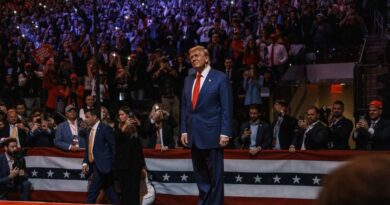Biden’s tariffs will increase car prices for unwanted purchases.

President Biden recently pledged to revolutionize the American auto industry, utilizing both incentives and now penalties, as described by The Washington Post.
However, trusting the president to steer our vehicles or dictate industrial policy may be questionable.
Biden has introduced stringent emissions restrictions for all vehicles, mandating that 67% of new passenger cars and trucks will be electric within nine years.
In the past, such centralized control over major sectors like manufacturing, commerce, production, and pricing would be deemed “fascist.” Today, it’s known as the Green New Deal.
After compelling automakers to produce substandard, overly-priced, and unpopular electric cars, Biden has now imposed significant tariffs on imports, burdening taxpayers and increasing costs for all vehicles.
The White House recently implemented new tariffs on Chinese steel and aluminum in the name of American workers, affecting around 14 million manufacturing jobs reliant on steel and impacting consumers.
Additionally, Biden raised tariffs on Chinese semiconductors without clearly stating any national-security rationale.
Biden’s tariff policies are a departure from his previous criticisms of Trump’s tariffs, acknowledging that Americans ultimately bear the financial burden of such actions.
The New York Times discusses the differences between Biden’s and Trump’s trade approaches, highlighting the focus on environmental concerns.
Economic realities do not align with sentiments on environmental policies, tariffs, or electric vehicles. The forced push towards EVs raises questions about the necessity and viability of winning the EV market.
The current strategy seems more like a corporate and union bailout rather than a sustainable solution.
The heavy losses incurred by automakers on EVs raise doubts about the practicality of the current model without state intervention.
By implementing tariffs and limiting choices in the clean energy sector, the government is indirectly propping up unprofitable ventures at the expense of consumers and innovation.
Encouraging competition and allowing other countries to subsidize the EV market could be a more sustainable approach rather than forcing unprofitable ventures in the industry.
The tariffs may appeal to voters but ultimately lead to increased costs for consumers and hinder innovation in the auto industry.
Instead of incentivizing the production of unprofitable goods, the focus should be on promoting innovation and competitiveness in the market.
Letting our rivals subsidize unprofitable ventures could be a more strategic approach in the global market.



